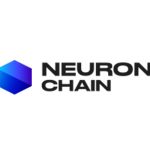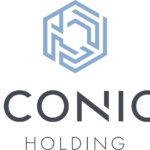Blockchain is a completely new technology based on a decentralized network whee data is stored and interconnected without modification. Simply put, it is an autonomous and censorship-resistant distributed database. This opens up many possibilities for creating blockchain applications.
The first platform to implement the blockchain solution was Bitcoin, the world’s first cryptocurrency, which provided users with a new value for the entire global community. Digital assets have become one of the most important means of payment in dApps and have every chance of becoming the most popular money of the future.

Business shows interest in blockchain solutions
A lot of companies took notice of the rapid progress in blockchain technology and decentralized solutions and have already started their own blockchain services development. And we are not talking only about giants tech corporations like Amazon or Microsoft – even smaller companies and retail stores have shown interest in blockchain technology.
Thus, if you want to remain competitive and not fall behind the technological curve, you simply cannot ignore the proliferation of blockchain.

Blockchain-as-a-Service benefits
With the development of decentralized technologies, building trusted Blockchain-as-a-Service solutions has become possible. Today, more and more companies are integrating and supporting blockchain technologies and creating BaaS services based on them, dedicating resources to the creation of new generation platforms. Decentralized technologies are in high demand or rapidly gaining popularity in logistics, medicine, digital arts, software and hardware solutions, cloud-based platforms, video game industry, Internet (Web 3.0), stock market solutions, robotics, and many other fields.
Distributed ledger technology benefits
Distributed ledger technology provides tools for building scalable blockchain networks. Blockchain adoption is approaching fast, and it is essential for every business to join this movement to win the race by offering managed blockchain services and improving the scalability and functionality of its applications for users and enterprise customers.
Advantages of using blockchain applications for businesses
The structure of the modern financial market is rapidly changing as users become aware of the shortcomings of the current system, which is based on economic entities known as fiat currencies, the use of which leads to significant risks for customers and companies alike. See what opportunities blockchain technology opens up for your business.
Absence of intermediaries
All financial transactions with currencies go through banks and other organizations. Companies need to open special business accounts and bear the costs of maintaining them in order to receive payments. The transition to blockchain platforms allows for the elimination of intermediaries that must be paid, which ultimately affects the cost of services and products.
Blockchain solutions use digital assets
Blockchain uses crypto assets such as Bitcoin and Ethereum, which users can transfer to each other in personal and non-custodial wallets. Crypto wallets differ from bank accounts in that they are completely anonymous, require no maintenance costs, and all user data is stored on local devices. Only users have access to their wallet funds with their private keys, eliminating the need to entrust their funds to a custodian.
Reduced infrastructure costs
Most businesses today use outdated and inefficient financial technology, where every transaction goes through a complex path through the banking system and is monitored. This, in turn, leads to additional commissions that subsequently impact consumers, who are forced to overpay for goods. Meanwhile, businesses themselves are forced to increase their costs to accommodate more complex work by the finance departments.
New revenue streams
Blockchain not only lowers costs for businesses but also opens up new revenue streams. Companies can start their own blockchain networks and issue crypto tokens, attracting investment to facilitate business development.
Additional opportunities for business
Blockchains support many different tools that help businesses develop full-fledged financial applications aimed at solving a variety of problems, from decentralized data storage to transparent blockchain-based applications.
Removal of legal barriers
For example, if you run an international distribution business like Amazon, then you need to meet the legal requirements of financial regulators and adhere to their standards to protect your customers when using fiat currencies to pay for goods and services. Not to mention, it makes doing business much more difficult and slows down progress.
Simplified expansion
Expansion to new markets and altering business processes in a traditional manner is a lengthy and complicated process that is quite wasteful of resources and often stalls the company’s development. But if you use a blockchain solution, you can create and operate a trusted Blockchain-as-a-Service application to update your business management and enter new markets, including decentralized finance (DeFi), while simplifying access to services and reducing workloads. Then, buyers can use crypto assets to pay for goods and services.
Simplified management
You no longer need to hire an entire finance department to review and process transactions. Blockchain greatly simplifies the handling of data and money, helping to reduce the cost of doing business. Autonomous and decentralized networks do not need to be managed on a regular basis because they function independently. Developers simply add or modify working scenarios based on which smart contracts process transactions.
Simplified supply chains
Blockchain has found application in the logistics industry and has revolutionized the transportation industry. Supply chain transparency allows you to track the origin of goods in the form of transactions on the blockchain to prove their authenticity while simplifying the workflow. For example, the well-known brand H&M uses blockchain to allow customers to check the real origin of clothes and even see how they were made in the company.
Simplified software development
For example, the IBM blockchain platform, based on the open-source Hyperledger Fabric, has become one of the leading blockchain services helping developers enter a new field to create applications based on open, accessible and flexible distributed ledger technologies.
Cloud computing
Take cloud-based service providers such as the Amazon Web Services Marketplace, which consists of more than 70 partners worldwide. The company has launched Amazon Managed Blockchain, a fully managed BaaS service that can create and manage scalable blockchain networks. Amazon Managed Blockchain is one of the leading cloud-based computing services that offer new opportunities for any consumer or online business.
Another well-known company, Microsoft, developed Ethereum Blockchain as a Service in 2015 based on Microsoft Azure technology with serverless cloud architecture. Using blockchain solutions, Microsoft’s service makes it easy to create and manage scalable blockchains with open-source frameworks. Blockchain, however, expands the possibilities for enterprises: for example, Blockchain-as-a-Service solution Kaleido manages multiple clouds on the blockchain.
Intellectual property protection
Blockchain is already being actively used in the areas of copyright and intellectual property. This approach greatly simplifies the process of tracking transactions and verifying the authenticity of the origin of certain assets, such as art, as well as transferring ownership to other individuals or third-party companies.
Tokenization of assets
A token issued as a digital representation of a real product provides an unconditional right to own it. To transfer the right to own responsibility to another person, it is enough to transfer the token itself without documentation, additional technical know-how and intermediaries, which makes the process long, complicated and expensive.
Decentralized exchange
Financial institutions and large corporations are investing millions of dollars in cryptocurrency infrastructure, including decentralized technologies. Users of decentralized applications can trade third-party crypto funds without having to entrust them to third-party companies, making crypto exchanges safer to use.
Decentralized and centralized exchanges can be combined
The largest crypto exchange, Binance, has both a centralized and decentralized exchange known as Binance DEX. The company also invests in infrastructure products and applications based on the BNB Smart Chain (formerly known as Binance Smart Chain).
Blockchain Consulting
Find out how blockchain technology is beneficial for your business and how it can optimize business processes.
Smart Contracts
Creating blockchain-powered apps makes it easier to automate business processes while keeping transaction costs low. We create and implement your own smart contract. Once launched, the apps work autonomously and independently, providing different scenarios for your business’ interaction with DeFi.
Security
Blockchain systems do not have a single point of failure because, unlike centralized operations, they are managed by a network of independent nodes. Each host in a decentralized environment is granted the same rights as other nodes. This makes data processing and storage systems more secure and resilient to hacks and data leaks.
Protection from the human factor
The decentralized architecture of blockchain-based solutions effectively eliminates the risks related to human factors – when there is no single decision-making center, there is no risk of a mistake or malicious actions affecting the entire network.
Privacy protection

Although blockchain services provide transparent access to information about transactions, user data remains confidential and cannot be accessed by anyone outside or inside. Moreover, many tools are available in the crypto environment to enhance the protection of transactions and data.
Here are just a few examples of privacy protection tools in crypto:
- Strong encryption
- Transaction shuffling
- One-time use of blockchain addresses (this can even be enforced with an application)
- Transaction redirection through multiple nodes
- “Empty” transactions prevent effective activity monitoring
Blockchain – privacy without compromises
One of the main advantages of blockchain technology is that there is no need to make compromises between privacy, security and transparency. All transactions can be perfectly transparent but have no way to connect them to specific individuals. Moreover, transactions themselves can be untraceable. In other words, anyone can check whether a transaction is legal and valid but cannot find out the sender and the receiver.
Blockchain is becoming mainstream
Large corporations such as Amazon, Twitter, and Reddit are creating structural divisions and are already looking for employees to develop their own blockchain-based crypto platforms. The list of companies focusing on the crypto market is growing, and soon we could see more applications integrating blockchain solutions.
Blockchain Project
Follow innovation and create your own Blockchain-as-a-Service platform – it will help you attract new customers and partners. Our company develops crypto solutions that enable smarter business solutions and also help in blockchain promotion.
Start your blockchain journey with ICODA!






























